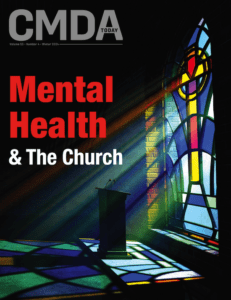Why Do We Shy Away from Sin and Judgment?
Plenty of clever people are beginning to say some sensible things, although the ruling elite are hardly listening at all. Most of the clever people who immediately recognized the significance of the fiasco at Harvard University involving Claudine Gay nevertheless analyzed it in terms of an ill-thought-out affirmative move in line with the currently dominant
by John Patrick, MD
Plenty of clever people are beginning to say some sensible things, although the ruling elite are hardly listening at all. Most of the clever people who immediately recognized the significance of the fiasco at Harvard University involving Claudine Gay nevertheless analyzed it in terms of an ill-thought-out affirmative move in line with the currently dominant but rotting Diversity, Equity and Inclusion (DEI) programs—which need to rewrite themselves as DIE programs and then be killed.
The appointment of Claudine Gay was simply wrong because she had none of the necessary academic credentials. As scholar and philosopher Thomas Sowell never tires of saying, all policy decisions have consequences, some of which can be avoided by careful thought. No careful thought has gone into the hiring patterns in higher education for a long time. We all want hiring in healthcare to be based on competence, but instead we produce boxes to be checked which do not predict overall competence. The cancelling and even firing of top-level epidemiologists at Standford and Harvard clearly indicates that competence is not the main issue—politics are. Politicians need to be kept out of policy decisions that are primarily about science and medicine, especially where there is already considerable disagreement. There ought not to be any areas of speech governed by political narratives, although that is obviously hard to do. He who pays the piper usually can call at least some of the tunes. Nevertheless, everyone in the university environment knows standards have been steadily declining for some time. The catastrophe involving Claudine Gay’s mistakes illustrates this phenomenon.
At the other end of the intellectual spectrum, psychiatrist Iain McGilchrist[1] is engaging a more thoughtful way to deal with the problem of real standards more than anyone else of whom I am aware. He is something of a polymath, starting with undergraduate English at Oxford University in the 1970s where he understood the Marxist barbarians were taking over, exactly as Antonio Gramsci had suggested. Gramsci thought the only way the left could win was via the long march through the institutions. (Gramsci was a founding member of the Italian Communist party, but he thought cultural dominance was more important than economic power). The long march through the institutions would displace all that rooted us in a rich cultural tradition, turning education into propaganda-driven “studies” programs. It has almost succeeded.
McGilchrist, however, went on to read medicine before turning to neurophysiology and brain imaging at Johns Hopkins and practicing psychiatry. He was well aware of the obvious fact that cultures rise and fall, but the question of why remains, especially when, like ours, the culture is declining. Three cultures have been the main resources for the scientific and economic success of the West: the Jewish culture rooted in the Old Testament; the Greek culture about the same time, giving us logic and serious philosophical writing and thought; and the Christian culture, which totally redirected us away from the pride of thinking we could fix things ourselves to a radical recognition of the central problem of sin and the need for a Savior and the Holy Spirit who would convince the world of sin, righteousness and judgment. He would also renew our minds and lead us into a world where righteousness is celebrated rather than scorned. We, however, must continue in the apostle’s doctrine, breaking of bread, fellowship and prayers. C.S. Lewis talked about the real nature of Christianity on the British Broadcasting Corporation (BBC) during World War II, and those talks grew into Mere Christianity. The opening chapter is entitled “Right and Wrong as the Clue to the Meaning of the Universe.” One of the most fundamental chasms between us and all other living creatures is that we all know good and evil exist; the animals don’t. Our lives are dominated by immaterial realities like love/hatred, truth/lies, promise keeping/breaking, etc. Unlike the material world, which we believe to be expanding, our moral world has limits such as from love to hatred, justice to injustice.
What McGilchrist does is show what we have lost since the time of C.S. Lewis. He focuses on the brain and shows us that our world is out of kilter based on faulty neurophysiology and pathology, and he is rapidly convincing the world that our previous views of right and left brain function are completely wrong. The left brain has become too dominant. It is concerned with the detailed life of grabbing and getting whilst the right brain is concerned with the big picture and should be dominant. Watch birds feeding and you see the two worlds at work. Picking up small seeds requires precise attention by the left brain in order to live, but at the same time the right brain must be scanning the world to see that the feeding bird doesn’t become some other creature’s breakfast. Just like any other biological function, the right brain must be appropriately exercised, and this is done via teaching—particularly literature and history. All cultures have their dark sides, but to pretend the West has been the worst of all has no basis in history. Those of us who grew up in the West and have traveled know that much good and some evil came out of the period of western hegemony.
Now here’s the problem: for more than five centuries, because of the obvious benefits of reductionistic science, we have concentrated on and rewarded left brain activities, the left brain world of detailed observation and measurement has dominated the right brain world of abstract meaning, purpose, art and religion. When I talk to Christian parents about their children’s education, they almost always want it to be relevant and directed toward a career. It is as though Paul’s magnificent and challenging command in Philippians 4:8 to meditate on whatever is true, noble, just, pure, beautiful and good had never been written. This is vastly more relevant and directed to eternal ends. As for wisdom, which we need in our political leaders, modern students are unlikely to hear the Word in school. T.S. Eliot asked the question when he wrote:
“Where is the Life we have lost in living?
Where is the wisdom we have lost in knowledge?
Where is the knowledge we have lost in information?”
(Choruses from The Rock, 1934)
For centuries, the only book generally well-known in the West was the Bible. Its stories provided the means to deal with the fact that life was generally “nasty, brutish and short”[2] for most people. Only a transcendent story can provide hope if that story is true. Most suffering and injustice can only hope for ultimate understanding in a world to come with occasional flashes of the eternal light here and now. The Psalms provided comfort in the here and now as they still do. When Christians go through hard times, the Psalms are the last resource to fade from their minds. Most of the enduring literature, art and music of the Western world is not trivial and is saturated for this reason in Scripture. The metaphors of the Western world are dominated by the Bible; without them, we are diminished.
An example from literature: In Pride and Prejudice, Jane Austen has Darcy say when he realizes he loves Elizabeth, “You must have thought me devoid of all proper sentiment.” He acknowledges the deficit in his education. When a culture is deeply rooted in the Judeo-Christian tradition, marriage is sacred and faithfulness required. When this becomes an enculturated norm, divorce is rare and major inventiveness increases only to fall away again when marriage waivers. The proper sentiments that Darcy recognizes were rooted in Scripture where there are examples of what is proper and what is not. Those examples were learned by listening to the Bible every day in school. There were no exams on this; it was lived. Thus, my blue-collar upbringing was in a street where no attacks on women happened, we did not lock our doors, the police were never called and divorce was exceedingly rare. This was our “tacit world” composed of stories and ideas that everyone knew.
Aristotle’s attempt to define the good life was easily integrated into the thought of Thomas Aquinas because it is part of what is written on our hearts. When we stop teaching these things via great literature from the past, we are robbing our children of their heritage. What President John Adams said is proving true: “Our constitution was made only for a moral and religious people; it is wholly inadequate to the government of any other.”[3]
[1] https://youtu.be/OpCIHhw4i8g?si=Ggi1Zbu31KRRgM_V
[2] https://yalebooksblog.co.uk/2013/04/05/thomas-hobbes-solitary-poor-nasty-brutish-and-short/
[3] https://founders.archives.gov/documents/Adams/99-02-02-3102




